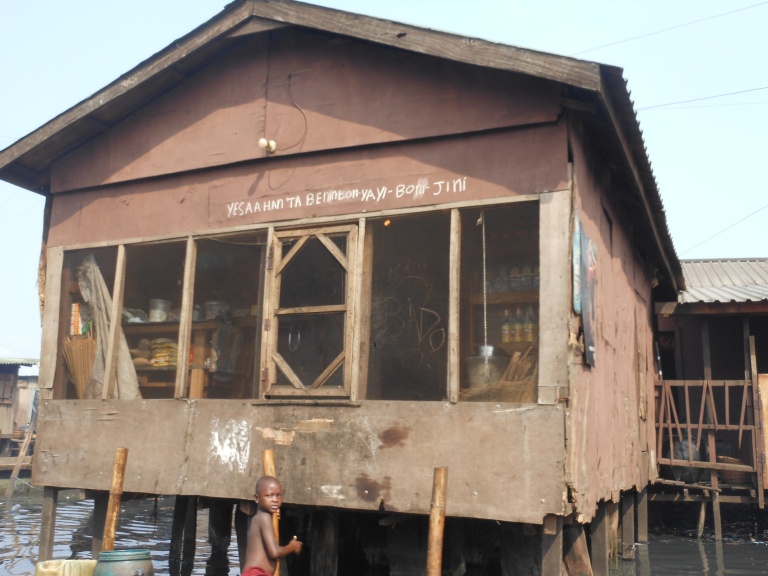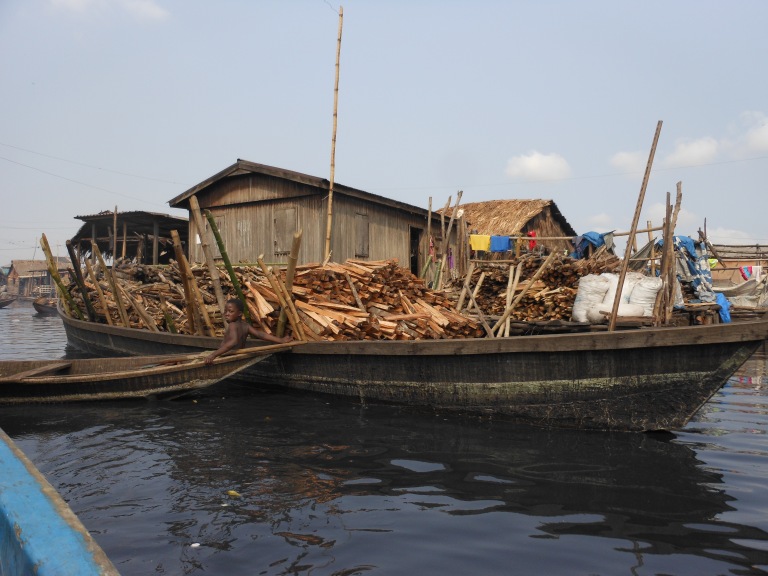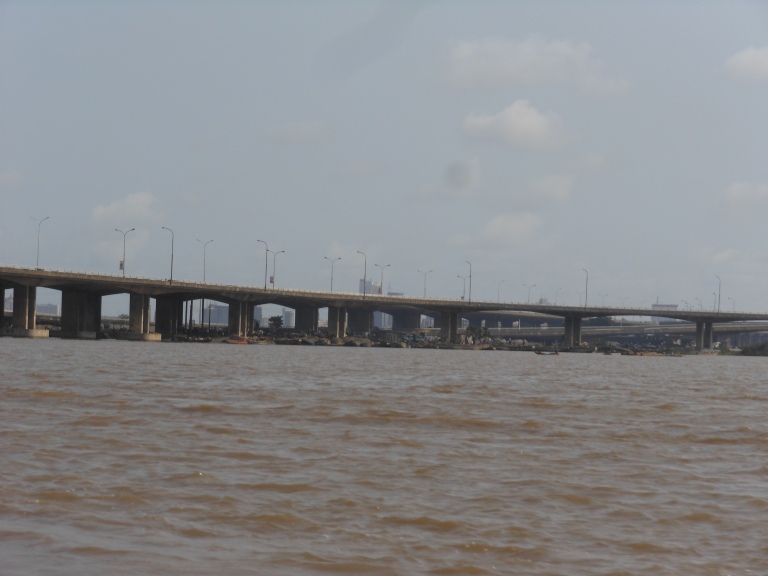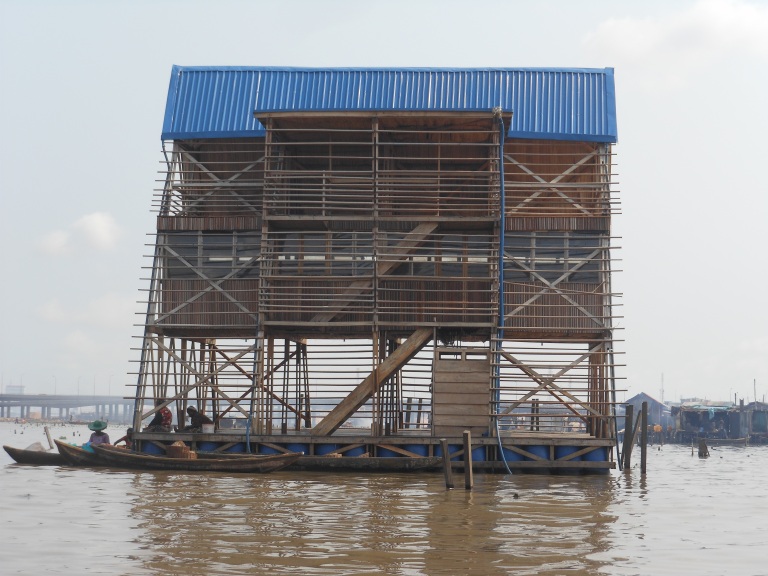Wow, it’s feels so great to be back blogging! I beg your forgiveness, dear readers. Please come back to me 🙂
The truth is that I had been incredibly busy with work and travel the last few months that I have barely had time to put up blog posts! In the time since I last blogged, I have been on a tour of the floating city of Makoko (Lagos State), unsuccessfully gone whale watching off the coast of Lagos State (I say unsuccessfully because sadly we did not see any whales), mini tour of Athens, Greece, and a grand tour of Calabar (Cross River State)……and I’ve got loads of pictures! So you must come back as I’ll be posting these pictures over the next couple of days.
Without further ado, let me begin with Makoko. For those of you that live in Lagos, Makoko is the stilt village you see on Third Mainland Bridge as you drive to and from Lagos Island. For a long time, I had been interested in visiting the village, but I was concerned about “slum tourism.” For those who do not know, slum tourism , it is tourism that involves visiting impoverished areas. You can read more about slum tourism here and here. The truth is there is no right answer for whether visiting impoverished areas is good or bad, in my humble opinion. I finally decided to go on the tour because all proceeds from the tour went to support the local school in Makoko (we were lucky that the students were graduating on the day we visited and we got to see them and be guests at the school’s end of year party). Nevertheless, I was always conscious that I was in a tour of mostly Westerners, visiting one of the poorest areas in my city and that made me inexplicably uncomfortable. What do you think? Should these type of tours be encouraged or not?
Still, I feel the people of Makoko should not be hidden or forgotten. Whether we are comfortable or not, these people are part of the fabric of this city – my city – Lagos. I wanted to share the little bit of their lives I was privileged to observe. I have to say that we were warmly welcomed by the community and I learned that most of the inhabitants of Makoko had migrated there from Benin Republic along the coast line. French was the “unofficial” language there and most spoke a patois that sounded like a combination of French and Yoruba. There is very little information available about Makoko, but according to Wikipedia, Makoko was established in the 18th century primarily as a fishing village with much of the village resting in structures constructed of stilts above the Lagos Lagoon. Today, the area is essentially self-governing with a very limited government presence in the community and local security provided by area boys. In July 2012, Nigerian government officials destroyed dozens of residences after giving residents 72 hours notice of eviction…..Lagos may continue the destruction of this historic community in order to redevelop what is now seen as prime waterfront. That would be a shame indeed. But I do not know if there are any easy answers for how to preserve the community while maximizing the use of the waterfront (should that even be an option)? In any case, I shall leave you to form your own opinions.
I have to say, although we were in one of those banana boats, we got some of the most amazing views of the Lagos coast line – these pictures belie how fast the boats were traveling!
Lagos City Coastline
Third Mainland bridge, below!
Makoko Village.
Below is the Makoko Gas Station – where residents buy petrol for their generators!
Fishermen heading out to fish. The sails are made of the popular “Ghana must go” bag material – jute, i think.







Below is a popular restaurant….evidenced by the spoons hung on the roof. But it was closed on the day we visited.

The School supported by the proceeds of this tour. The kids are excited to see the shows – cultural dances, recitals, dance competition – being put on by the primary school students.
Floating School
This was the controversial floating school that was shut down by the Lagos State Government for being an illegal structure interfering with the plans the government has for Makoko. I reproduce below, the article from the Vanguard newspaper about it.

According to the Vanguard newspapers:
THE Lagos state government has outlawed the ultra modern Makoko Floating School barely seven months after the construction started. The school that is expected to address perennial flooding that truncate access to education by children of the community may never be allowed to operate after-all. The three_storey building with an area of 220 metres was built on a foundation of 256 plastic drums and powered by solar panels suspended on the roof. It isaimed at achieving the Millennium Development Goals, MDGs, Goal II, which is to boost universal primary education. The floating school being built jointly by the residents of Makoko/Iwaya Waterfront community, Yaba Local Council Development Area, LCDA, United Nation Development Programme, UNDP and a private firm -NLE works, Nigeria, was expected to accommodate no fewer than 100 pupils and their teachers.
The founder of NLE, and promoter of the floating school, Mr. Kunle Adeyemi who spoke to Vanguard from his Netherland office, said that the structure would have served as an extension of the only existing school in the coastal community_ Whayinna Nursery and Primary school. Adeyemi said that the ground floor of the three_storey building serves as an open recreational space for the pupils during the day and as a public arena for community activities after school hours. While the first and the upper floors have classrooms that would have served primary classroom purposes. Govt says it’s an illegal structure: Speaking on government’s position on the school, the Commissioner for Waterfront and Infrastructure Development in Lagos State, Prince Adesegun Oniru said; “The floating school has been illegal since inception. The owner of the floating school waited until there was a legal issue in the area before he commenced the construction of the school.”
According to him; “So as far as that floating school is concerned, it was erected without the permission of the state government. “The simple answer to the floating school is that it is an illegal structure and it shouldn’t be there.” The commissioner said that its development will affect the government’s redevelopment plan for the area, saying “This wouldn’t deter us to abandon our plan for the area.”
Community sues govt
Speaking on the floating school, secretary of the Makoko Waterfront Community, Mr. John Keke, who spoke to Vanguard on Phone said that the community and the government are already in court over the legality of several activities of the residents of the waterfront community, saying; “I wouldn’t like to speak more on the issue because we were already in court.” It will be recalled that the residents and various Non_Governmental Organisations, NGOs, sued the state government over the demolition of hundreds of structures, which the government claimed was embarked upon to address the environmental issues affecting the community and to get rid of the shanties built close to the power line that passes through the community. On the court case, Oniru however said; “We aren’t going to do anything that would amount to contempt of court. We will do what we need to do. If the owner of the structure got money to waste, he should continue. However we will not abort our plan.”
You can also read more about the floating school from the founders of the project, here. What do you think of this controversy?
And because it wouldn’t be Lagos if I didn’t do this :-), here’s a picture of the luxury yachts reportedly owned by Otedola and Dangote – two of the richest men in Nigeria!


































Nice one, Titi! I need to holla you and roll with you while I’m in Nigeria till Jan. I want to do some photojournalism while I’m here and I need guidance of power brokers like you. 🙂
Lol! Of course 🙂 thanks for leaving a comment.
Intresting!!!
It is. Thanks for stopping by my blog 😊
Another interesting article. If only this community can be refurbished (without displacing the locals). Imagine clean waters, better opportunities, better built (wooden) houses… It’s a shame for the government to simply destroy these places. There are better ways of preserving them.